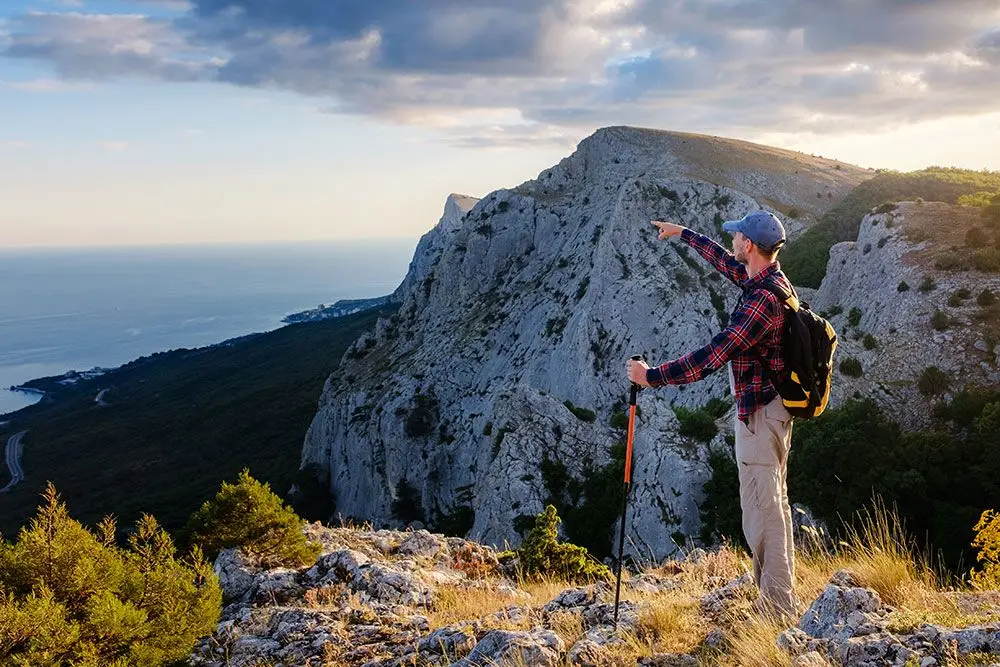GEMExpert – Reconciling good living and sobriety? Mission possible – 17 inspiring initiatives
Interview with Fiona Ottaviani, associate professor at Grenoble Ecole de Management (GEM) and co-chair of the Inclusive Sustainability Chair
 Why conduct this study on sobriety, well-being, and how to measure them?
Why conduct this study on sobriety, well-being, and how to measure them?
Fiona Ottaviani: The concept of sobriety and the actions associated with it are not always well understood or positively perceived. To facilitate the acceptance of sobriety policies, we need to deconstruct the idea that a more frugal lifestyle makes people “unhappier.”
Many initiatives exist in France and abroad to build well-being indicators, helping us understand what truly matters to people. We studied these initiatives to provide a synthesis of their “co-benefits”: well-being and environmental preservation can go hand in hand.
We demonstrate that well-being is primarily based on practices compatible with sobriety. These initiatives highlight the importance of non-market elements (such as social protection systems, healthcare, education) and dimensions with a lower material footprint, such as volunteering, mutual aid, and caregiving.
Download the report in French: Indicateurs de bien vivre et cobénéfices de la sobriété
How did you conduct your research?
F.O.: We analyzed 17 initiatives from France and abroad. Although terms vary (well-being, quality of life, sustainability, sustainable development, socio-ecological health, etc.), all these experiences engage in deep reflection on our socio-economic objectives and challenge a vision of progress limited to economic indicators.
In practice, we relied on document reviews for each project and conducted interviews with initiative leaders.
Examples of observed co-benefits?
F.O.: The Tell Me (BRRISE) initiative, implemented in Auvergne-Rhône-Alpes, surveys people about what contributes to their well-being in their region. It highlights the importance of natural spaces for feeling good. Other key findings include the link between health and soft mobility and the interactions between energy sobriety, biodiversity preservation, and access to decent housing.
What improvements can be made to these approaches?
F.O.: The connection between social sustainability and environmental sustainability is not sufficiently considered by stakeholders and should be reinforced. For example, they often focus on climate issues but do not fully integrate socio-economic aspects.
Another key point: co-benefits should be seen dynamically rather than statically. For example, promoting soft mobility requires creating synergies between sobriety and well-being by designing infrastructures that make walking and cycling safer and more enjoyable.
What actions do you propose?
F.O.: The report provides recommendations to promote co-benefits and describes the tools developed in various initiatives. Additionally, in collaboration with other stakeholders, we created a website on the topic, supported by ADEME: Cap Bien Vivre. It is aimed at local authorities, businesses, associations, and other stakeholders.
We are also developing a methodological guide for these stakeholders. To bring them together and enrich our document, we are organizing a conference at Grenoble Ecole de Management on June 26.
The publication
Ottaviani Fiona, L’Huillier Hélène, Argoud Fanny, 2024. “Indicateurs de bien vivre et cobénéfices de la sobriété”. 170 pages.
The publication is the result of a partnership between the Inclusive Sustainability Chair of Grenoble Ecole de Management, the Campus de la Transition, and ADEME.
Bio
Fiona Ottaviani, PhD in Economics, is a researcher within the Alternative Forms of Markets and Organizations research team and co-chair of the Inclusive Sustainability Chair at Grenoble Ecole de Management. Her research focuses on transformations in rationalization, action, and evaluation logics in public policies and organizations. She is particularly interested in the construction and use of well-being indicators. Her work contributes to rethinking collective dynamics for socio-ecological transition, the role of experts in knowledge production, and territorial synergies.
GEM programs that address the issue of territories in transition

▶ Bachelor Digital Business & Development
▶ MSc Management for Sustainability Transition
▶ MSc Management of Sports and Outdoor Markets
▶ MSc Design & Innovation Management

